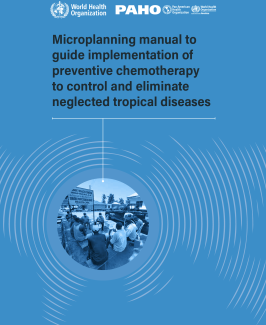
Schistosomiasis (SCH) is a parasitic disease caused by flatworms and transmitted by infected freshwater snails. People can become infected with SCH by bathing, working, washing, fishing, swimming, playing or walking in contaminated bodies of water. SCH is present in every country in the Act | West portfolio, and over 48 million school-age children (SAC) are at risk for SCH across the 11 countries. SCH can affect the urinary tract or the intestines, causing pain, diarrhea, and bloody stools or urine, and in children, poor growth and learning problems. Left untreated, it can lead to spleen or liver enlargement, liver damage, kidney failure, infertility, bladder cancer.

Act | West Support
Act | West provides financial and technical support to national MOH to treat SAC and certain at-risk adults periodically with medicines that treat SCH and STH and control their spread. In FY12–FY22, over 174 million and 359 million SCH and STH treatments, respectively, of which, were delivered to over 36 million and over 47 million SAC in Act | West countries with USAID support. Act | West also supports technical data reviews and in Mali and Burkina Faso, multi-sectoral national technical committees. In addition, Act | West supports national efforts to develop partnerships for NTD sustainability as well as for programmatic co-implementation with other health programs.


